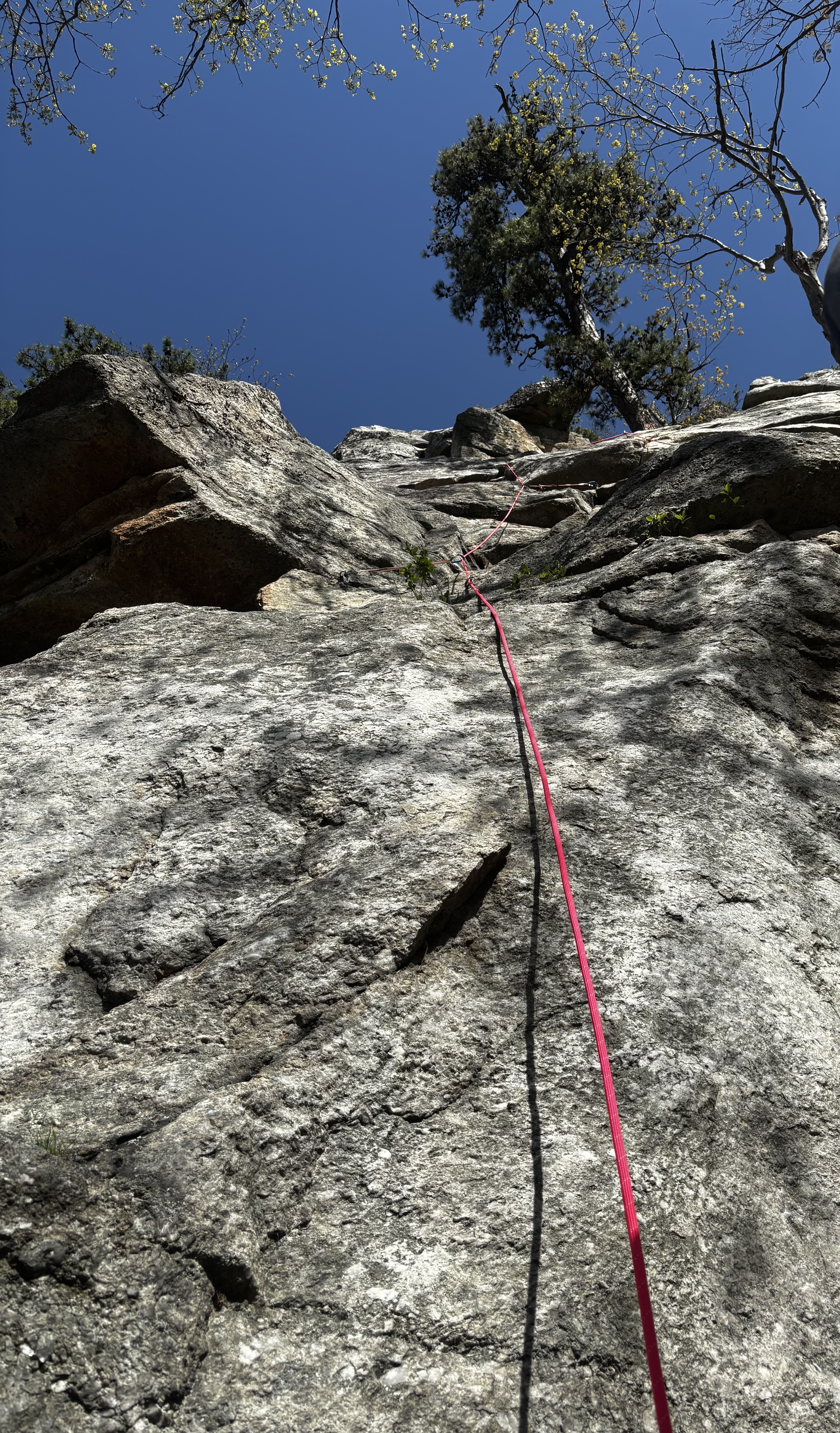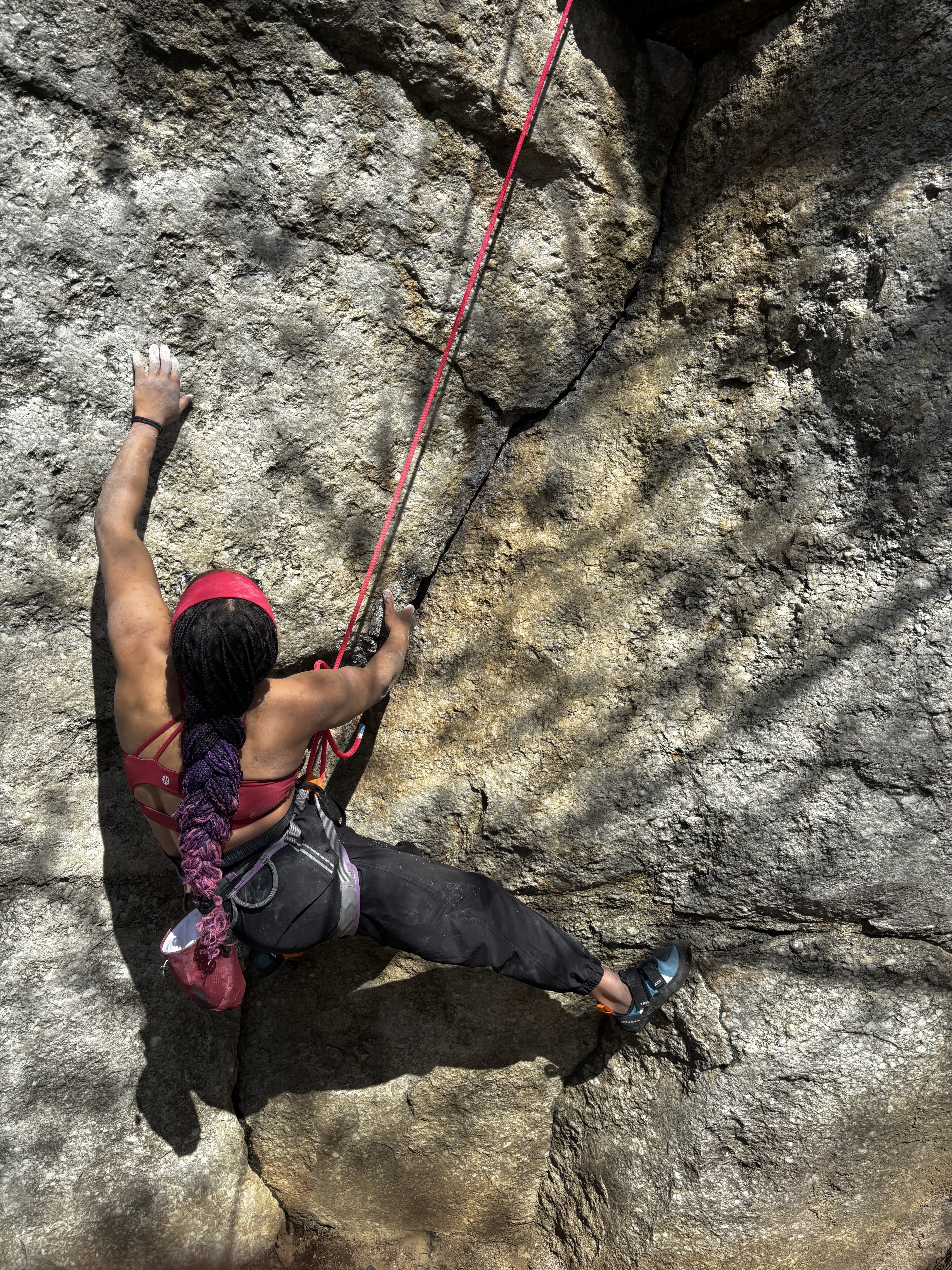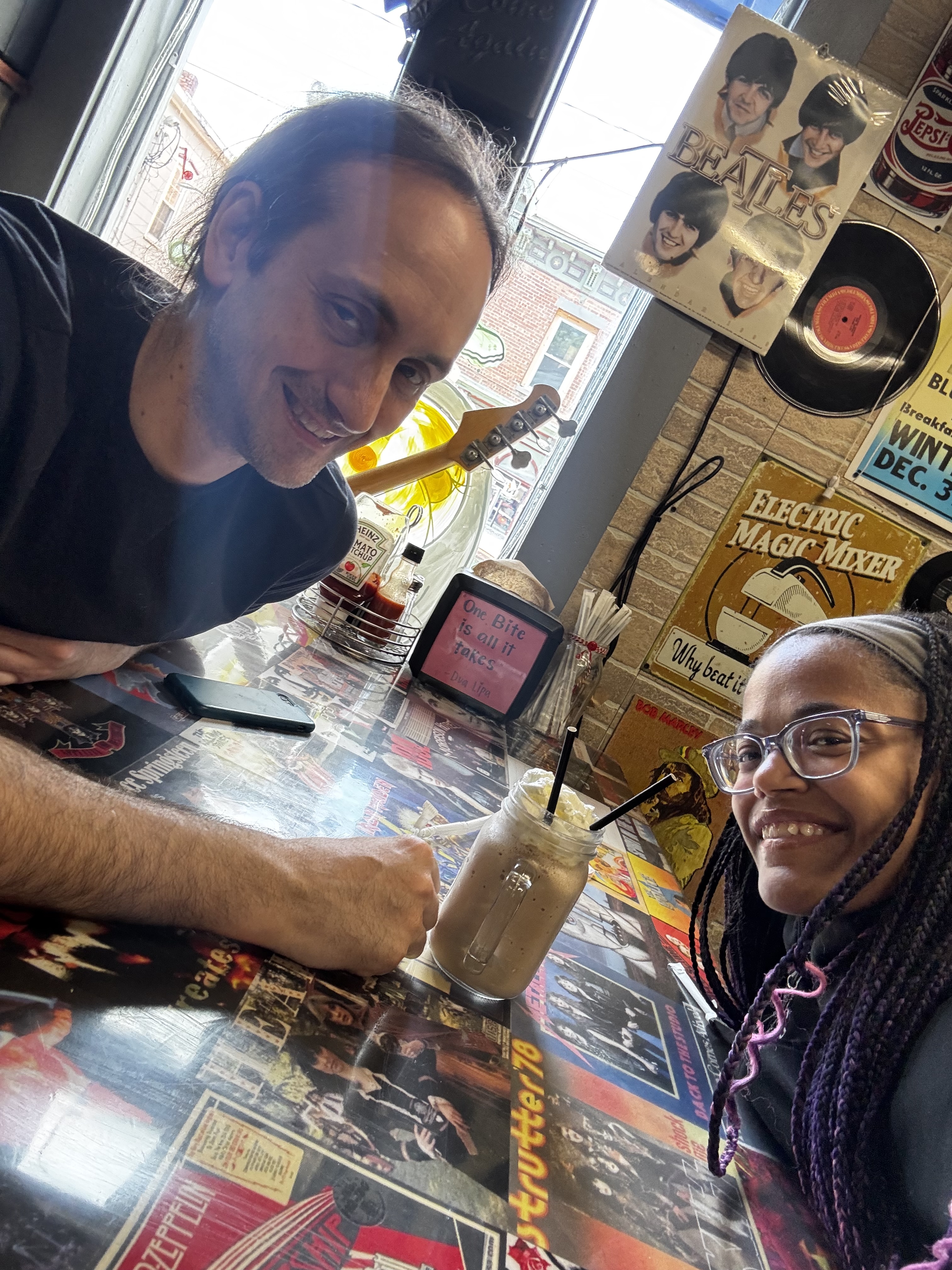Imposter Syndrome
This is a rock

And this is me climbing a rock

A little while back, I posted about climbing a route called Something Interesting. That was the beginning of what is probably going to be a very good season. I’ve gone out a couple times since, and I’ve been having a ton of fun doing it.
But the post is titled Imposter Syndrome. So, let’s talk about that.
As you all probably know by now, I have a disability. My disability is a Cerebral Palsy, which is a neurological disability that effects my movement, strength, and overall endurance. I wrote a whole post titled Cerebral Palsy where I go into details about how I’m effected by the disability.
Anyway, so I have Cerebral Palsy (CP). CP makes life interesting, to say the least. Like I said, my movement is affected, as well as strength and endurance. I say my life is interesting because I have goals that arguably don’t make that much sense when you consider how my disability effects me.
One of those goals is to lead up to the top of El Capitan. To do that, I’m trying to go outdoor climbing as often as I can to get in some lead and aid climbing practice.
Outdoor climbing is great. I love touching rock, meeting people out on the crag, and just being out in nature. It makes me very happy to know that I can hike and climb out there just like everyone else can. Years ago I could only dream of going out, hiking to a crag, and leading up some routes. Now it’s a reality, and I couldn’t be happier about it.
But happiness isn’t the only emotion I have regarding outdoor climbing. There’s always a twinge of sadness that I get sometimes when I climb outside, or even when I’m in the gym. It’s the same feeling I get every so often when I hang out in a group of able-bodied people.
That sadness is attributed to Imposter Syndrome.
Imposter Syndrome effects many people in many different ways. Mine rears its head whenever I am surrounded by able-bodied people. I find myself thinking about what I would be like if I weren’t disabled. I fantasize about what I’d be able to do if my legs worked. I’d probably be a runner, or a wrestler.
But obviously, that’s not the life I was given. I instead make the best of this life. That doesn’t stop me from feeling sad sometimes though. I sometimes find myself feeling like I don’t belong in the climbing world. I train hard at the gym, and try to climb hard too, but I often feel like I’m not doing enough. Other people at the gym are leading harder routes. People are pulling off moves that I don’t have a hope of ever doing in this lifetime. Climbs with high or far foot moves are almost always climbs that I just can’t do. I can lift heavy weights but I can’t carry them to where I need them. I need a spot for certain exercises because my balance is so bad.
The gym isn’t the only place where that feeling rears its head. Like I said earlier, I do a fair amount of outdoor climbing these days. But I have a hard time hiking, walking, and climbing. Trad climbing terrifies me. I can’t do long days like my able-bodied friends can. There’s often the lingering feeling that my climbing partners would rather go outside with people who won’t walk as slow, or who can have longer days, or who can climb harder things. These things get to me, you know?
These feelings were particularly strong the last time I went out climbing. I don’t know exactly why, but I suddenly found myself feeling particularly sad. Ben and I went up to a two-pitch climb. The hardest part of the climb was supposed to be the bottom part, but I found most of the first pitch to be difficult. When we came down we went to a different climb called Easy Overhang. This climb is a 5.2, and everyone who talks about it calls it easy. I tried going up it and just could not get very far. I came down and thought: Wow, what right do I have to be out here? Why do I feel like I have the right to be out here like the able-bodied people do? That’s not the first time I’d had that thought, but as familiar as it was it still felt bad.
But here’s the thing: Most people deal with Imposter Syndrome. There are a lot of talented people in the world, and being among them is scary. But I’ve been learning how to handle it. It’s important to remember that it doesn’t matter how talented the people around you are. If you’re trying your best, you too deserve to be considered one of those talented people.
I’m learning this lesson too, and I think I will be for a long time. I’m working on celebrating the small improvements I make during my training so that I don’t lose track of my progress. I also learned that it also helps to not make comparisons to those around you. I’ve known this for a while, but I still find it hard to remember sometimes.
Oh also! It also helps to reward yourself for making progress on your goals. My self-reward is milkshakes!

Dealing with Imposter Syndrome is hard. When does it pop up for you? How do you guys deal with it? Do you have self-reward systems? Share your thoughts with me via email, or via my instagram. I’d love to hear your thoughts!